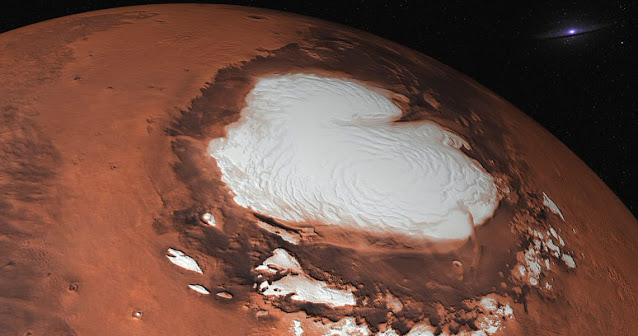Scientists have discovered a large reservoir of water hidden within Mars' gigantic 'Grand Canyon.'
A group of scientists using the European Space Agency's ExoMars Orbiter identified a significant deposit of water immediately beneath the Valles Marineris Martian canyon system, which is ten times longer and five times deeper than our own Grand Canyon.
The scientists discovered genuine water ice around three feet below the canyon's surface after analysing data from the Trace Gas Orbiter's (TGO) Fine Resolution Epithermal Neutron Detector (FREND).
The presence of water on Mars could indicate the presence of microbial alien life, as well as the possibility of more complex life forms - especially if Mars has the vast expanses of water that Earth does.
“With TGO we can look down to one meter below this dusty layer and see what’s really going on below Mars’ surface,” lead author Igor Mitrofanov of the Russian Academy of Sciences said in a statement.
“FREND revealed an area with an unusually large amount of hydrogen in the colossal Valles Marineris canyon system: assuming the hydrogen we see is bound into water molecules, as much as 40 percent of the near-surface material in this region appears to be water,” he added.
The massive area is about the same size as the Netherlands, meaning that there is plenty of room to potentially find more water.
“We found a central part of Valles Marineris to be packed full of water — far more water than we expected,” added coauthor Alexey Malakhov. “This is very much like Earth’s permafrost regions, where water ice permanently persists under dry soil because of the constant low temperatures.”
“Overall, we think this water more likely exists in the form of ice,” Malakhov argued.
Scientists are hailing the discovery as a tremendous first step toward potentially finding signs of ancient life on the Red Planet, or even possible venues that we ourselves may one day inhabit.
Reference(s): Icarus

